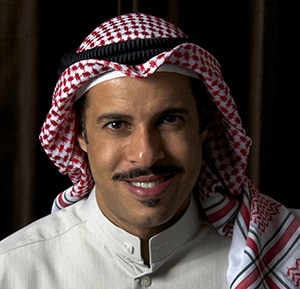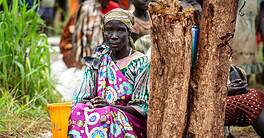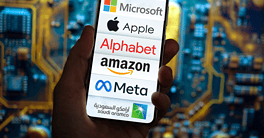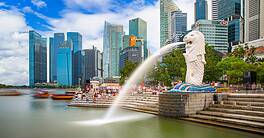Mohammad Al Duaij studied finance in the UK and worked in several Kuwaiti financial institutions before taking the helm of Alea Global Group, a real estate and private-equity investment conglomerate founded by his parents.

Global Finance: Give us an idea of your family’s history.
Mohammad Al Duaij: My family moved to Kuwait in the 17th century, before the formation of modern Kuwait. The old souks and one of the main avenues in Kuwait City still carry my name.
The family’s wealth came from real estate. Alea Global Group was formed in 1998 by my parents, and all the investment since was made under this umbrella. Today we have different lines of businesses: We invest our own capital into real estate and private equity. Our real estate is in Kuwait, Saudi Arabia and Latin America. The private equity is mainly in Europe.
We also started commodity trading for goods like sugar, wheat, rice, sunflower oil, iron and coal. Since Asia is the biggest market for such commodities, we established a trading arm in Shanghai back in 2008.
GF: How are decisions made within the family?
Al Duaij: I got on board as CEO in 2008. The agreement is that I take the decisions; I run the company and report to other family members annually. If they are not happy with the performance, they give me some guidance and I take it from there. If I don’t feel comfortable taking a decision, I consult my father, who is still alive and has 100% ownership of the business.
GF: With this type of leadership, business, family and personal matters can sometimes get intertwined. How do you deal with this?
Al Duaij: My father has two sons and two daughters. My brother has his own business, and my sisters have other jobs. Since 2008, I’m dedicated full-time to the company and I run all the day-to-day operations. I wouldn’t feel appreciated if someone tried to interfere.
Alea Global Group recently expanded to Latin America because I love this region. I lived there, and I see a lot of opportunities. At the beginning, my family was not happy with it; but I took the challenge and now they see the results. They are convinced.
GF: How can you ensure a generational transition goes smoothly?
Al Duaij: You need to make the new generation passionate about the company. From a young age, you should be in love with the business and see it not just as a job but as a responsibility.
We function like a boutique family office, in spite of the size of our wealth. For us, family is more important than anything. Money comes and goes; but family—the blood relationship—that will last forever.
I don’t have children. My nephews and nieces are still young; but when they become university students, I will start giving them internships in the summer, to teach them how the business works. At this stage, we have no written processes, because it is still early; but the idea exists somewhere.
GF: As a business grows, do you think that it can remain family-owned?
Al Duaij: Absolutely, especially in the Gulf region. We are connected to our businesses; they are part of our identity. If we sell or go public, it feels like we are losing our identity. With foreign shareholders comes interference in the decision-making process. A few families did it, but they are a minority.
GF: Globally, few companies remain family-owned after the third generation.
Al Duaij: In the Gulf this is not the case. It’s difficult to read from outside. If you look at all the market research, you won’t get the right data, because people are very discreet about the way they run their businesses. That being said, I can tell you with 100% certitude that the majority of Gulf business owners don’t want to sell shares to non-family members.



